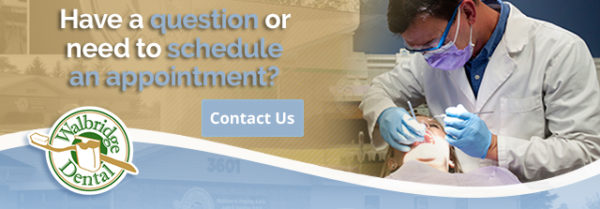Ignoring dental problems is like ignoring a small leak in your house—it might not seem urgent at first, but eventually, it can lead to serious damage. Your teeth and gums will often give you clear warning signs when something is wrong. The key is knowing when it’s time to stop waiting and book an appointment.
Here are five major signs you should see the dentist ASAP to avoid pain, infections, and expensive treatments down the road.
1. Persistent Tooth Pain or Sensitivity
If your teeth hurt often, don’t ignore it. Whether it’s a sharp pain when you bite down or constant sensitivity to hot or cold foods, this is usually a sign that something is wrong underneath the surface.
Common causes include:
- Cavities (tooth decay eating away at the enamel)
- Cracked or chipped teeth
- Exposed tooth roots (often from gum recession)
- An infection deep in the tooth (which may require a root canal)
Tooth pain doesn’t go away on its own. If you’ve been dealing with it for more than a day or two, it’s time to see a dentist before the issue gets worse.
2. Bleeding, Swollen, or Receding Gums
Bleeding gums are not normal, no matter how hard you brush. If your gums bleed when flossing or look red and swollen, you may have gingivitis—the early stage of gum disease.
Without treatment, this can progress into periodontitis, a serious infection that leads to tooth loss and even affects your overall health. Other warning signs of gum problems include:
- Receding gums (teeth looking longer than before)
- Chronic bad breath
- Loose teeth
- Pus between your teeth and gums
The good news? Early gum disease is reversible with professional cleanings and good oral hygiene. If you notice these signs, don’t wait—your gums won’t heal themselves.
Learn more about gum disease from the American Dental Association.
3. Bad Breath That Won’t Go Away
We all get bad breath after eating onions or garlic, but if it sticks around even after brushing, something might be off.
Chronic bad breath, also known as halitosis, can be caused by:
- Tooth decay (bacteria breaking down food particles in cavities)
- Gum disease (infection causing odor)
- Dry mouth (lack of saliva production lets bacteria thrive)
- Tonsil stones (hardened debris stuck in your tonsils)
Mouthwash might mask the odor, but it won’t fix the underlying problem. A dentist can determine the cause and recommend treatment to eliminate bad breath at the source.
4. Loose, Wobbly, or Shifting Teeth
Your adult teeth should never feel loose. If they do, it could mean:
- Advanced gum disease (weakening the bone that holds your teeth in place)
- Trauma or injury (even minor accidents can cause hidden damage)
- Teeth grinding (bruxism) (wearing down the support structures of your teeth)
Loose teeth can be saved if treated early. If you notice any shifting or gaps where there weren’t before, make an appointment with your dentist immediately.
5. Sores, Lumps, or White Patches in Your Mouth
Mouth sores happen to everyone, but some should not be ignored. If you have a sore, lump, or white patch that doesn’t heal within two weeks, it could be a sign of something more serious, including:
- Oral infections (bacterial, viral, or fungal)
- Leukoplakia (a condition that can lead to oral cancer)
- Oral cancer (early detection is key for treatment success)
Most mouth sores are harmless, but if something doesn’t heal or feels unusual, it’s better to get it checked out sooner rather than later.
When to See a Dentist & How to Prevent Dental Issues
If you experience any of these signs, don’t wait—schedule a dentist appointment as soon as possible. Early intervention can save your teeth, prevent pain, and cut down on costly treatments.
How to Prevent Dental Problems:
- Brush twice a day with fluoride toothpaste
- Floss daily to remove plaque between teeth
- Visit your dentist every 6 months for a checkup
- Avoid excess sugar (reduces cavity risk)
- Stay hydrated to maintain saliva production
A little effort now prevents big problems later!
FAQs
How often should I visit the dentist?
At least twice a year for a cleaning and checkup, unless your dentist recommends more frequent visits due to specific conditions.
What happens if I ignore tooth pain?
It could get worse and turn into an infection, requiring more serious treatment like a root canal or extraction.
Are bleeding gums always a sign of gum disease?
Not always, but they are a warning sign that something is wrong. It could be due to poor oral hygiene, vitamin deficiencies, or other health issues.
Can bad breath be caused by something other than dental problems?
Yes! It can be linked to dry mouth, acid reflux, or even certain medications. However, a dentist can rule out oral health issues first.

Contact Walbridge Dental
Are you missing one or more teeth? We can help! The professionals at Walbridge Dental provide complete family dental care to families in the Millbury community. Contact us online to set up an appointment now or call us at 419-836-1033.
Connect on Social Media!
